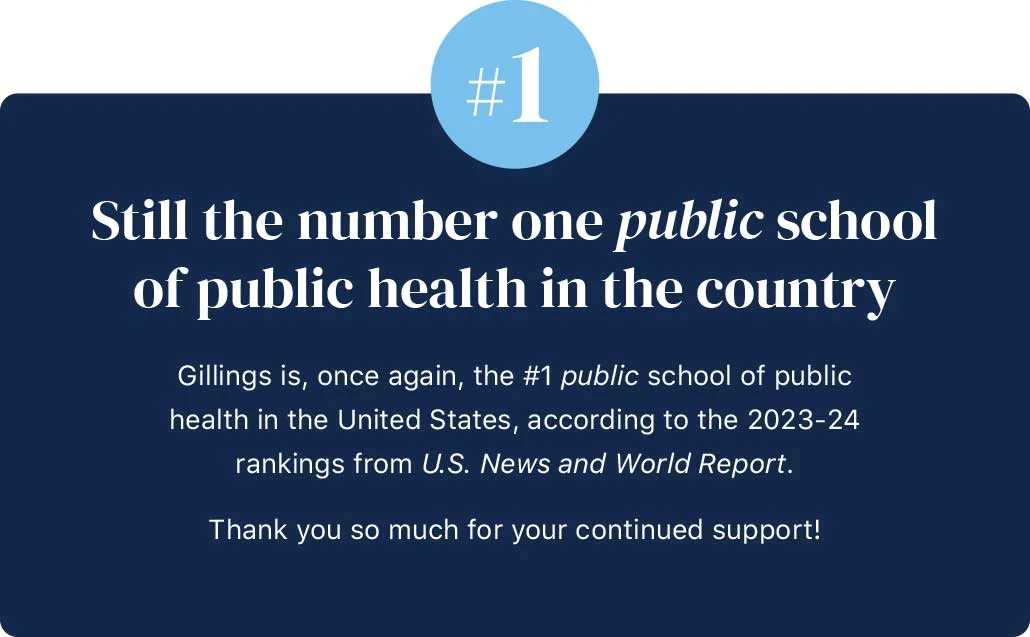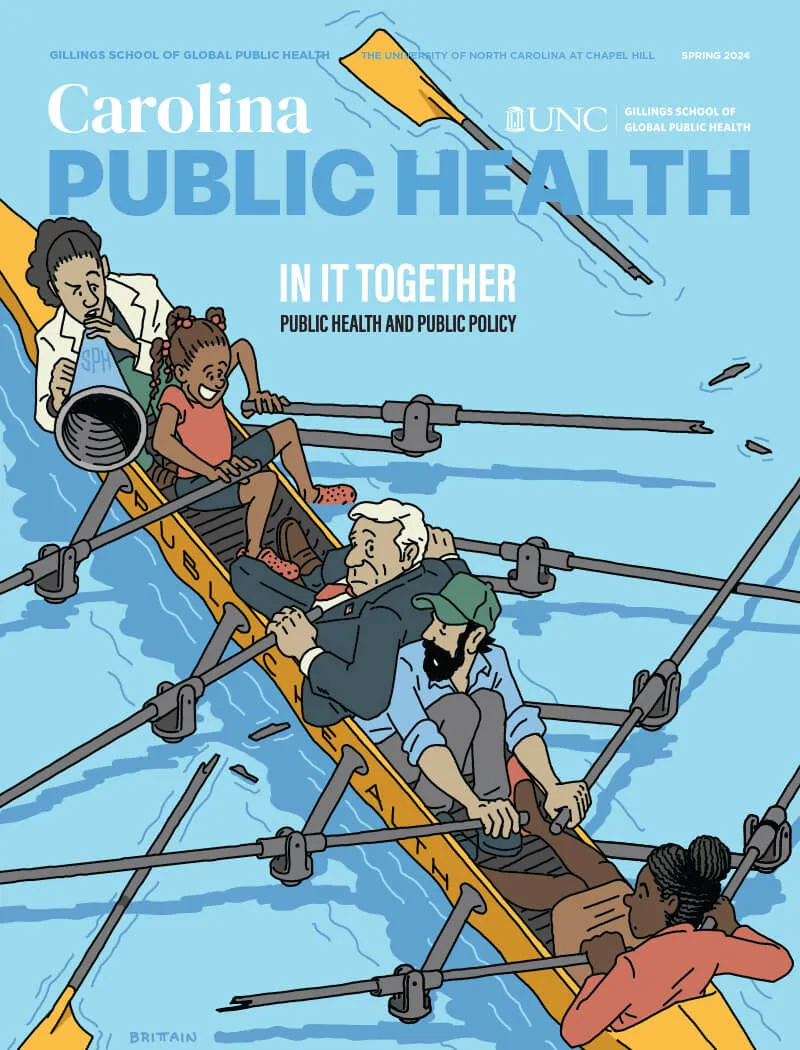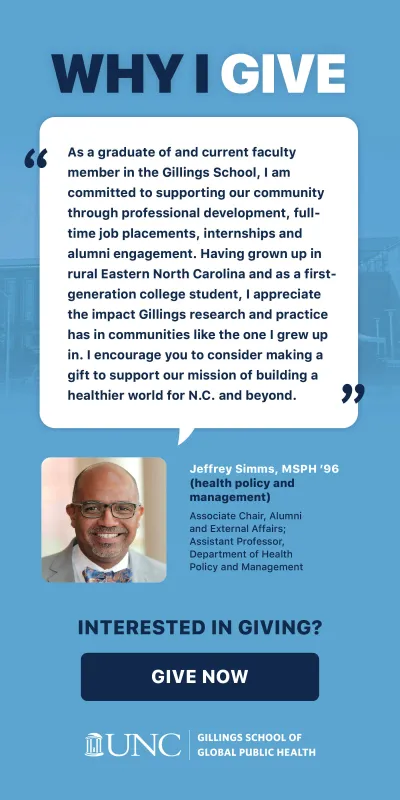Ki’yonna Jones helps public health practitioners enhance their skills
Ki’yonna Jones boosts public health workforce skills in NC, focusing on leadership, equity and systems thinking to address health challenges.
The field of public health is full of professionals and policymakers who dedicate time to improving the well-being of their communities. While many have a foundation in health sciences or other professional areas, public health is a sector where practitioners often wear many hats and need to acquire new skills for the growing scope of their job duties.
The North Carolina Institute for Public Health (NCIPH) at the Gillings School supports the public health workforce by offering workforce development, and community assessment and strategy services to practitioners in North Carolina in everything from leadership skills to equity and inclusion. Ki’yonna Jones, MBA, MHA, a senior training associate at NCIPH, works to develop and deliver these programs, which she says are designed to help the workforce meet 21st century challenges and become effective leaders and partners in public health.
“The public health workforce encompasses so many people,” she said. “From health directors, community health workers, water plant operators, social workers — the list goes on and on!” So, it’s important for all these collaborators to have a public health mindset. Now, more than ever, the ability to think at a systems level and strategically leverage relationships and resources to tackle challenges and health inequities communities face is critical. Public health workers who know how to lead and communicate the significance of public health initiatives at every level moves the change forward.
“We’ve come to expect clean air and clean water when we walk out of the house, but that doesn’t come naturally. This isn’t magic; it takes a whole workforce of people who care and who strengthen the social determinants of our health.”
This mindset is one that approaches health from a population-based perspective, understanding that these connections work together to promote health at a systems level that is often called “ecological.” This means that individual behaviors are only one facet of our health. Policies, cultures, communities and institutions all have a role to play as well.
Through her work at NCIPH, Jones and colleagues offer members of the workforce continuing education opportunities to strengthen their foundational skills and develop that public health mindset,
The benefits, Jones says, grow exponentially with each additional practitioner who receives training—it’s the ripple effect.
“When we have more people who know what it means to live in a healthy environment, they pass that knowledge along to others,” she explained. “We’ve come to expect clean air and clean water when we walk out of the house, but that doesn’t come naturally. This isn’t magic; it takes a whole workforce of people who care and who strengthen the social determinants of our health.”
Jones, who has master’s degrees in health care administration and business administration from Pfeiffer University, said her original plan was to pursue a career in hospital administration or community development. But like many people who work in public health, she says she fell in love with it once she saw it in action. For Jones, this happened while coaching a state team through a complex challenge at a “Learning Journey” experience with the National Maternal and Child Health (MCH) Workforce Development Center, which is housed in the Gillings School.
“I realized I want to be connected to the people who were doing the work. I want to learn their context and partner by sharing cross-cutting tools and offering resources that will help impact the world around them,” she said. “It felt like this was the level where real change happened.”
Jones has been with NCIPH since 2018, where she also works with UNC’s Injury Prevention Research Center (IPRC) on the Vision Zero leadership institute to reduce traffic injuries and fatalities. It’s a wide scope of work where new connections are always being uncovered. She enjoys being able to see public health from many different sides, ranging from the national, state and local levels, and loves connecting with practitioners through coaching where they wrestle with uncertainties, discover fresh perspectives and reflect on how their leadership impacts the change they want to see.
“When people come back to us and describe how components of a course, tool or training helped them to advance adaptive and technical challenges in their organization,” she explained, “or say things like, ‘In review of our budgets, I found opportunities to more equitably distributed resources’ — that’s what makes this job worth it.”
Because NCIPH provides state-wide training, staff members can be found in many parts of N.C. Jones is currently located in Charlotte, where she lives with her spouse and two sons. In her free time, she loves to explore the local food scene or travel.




